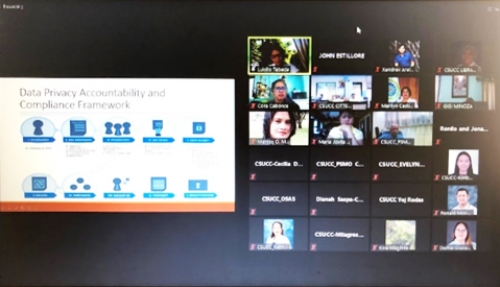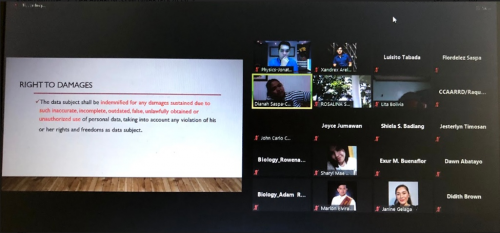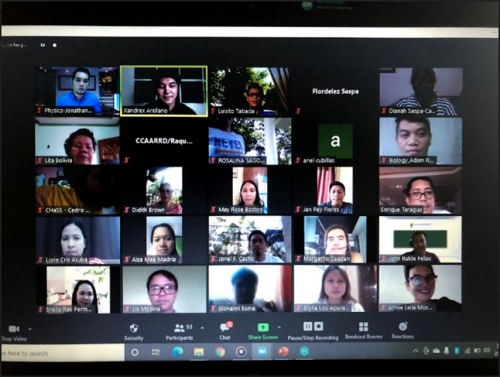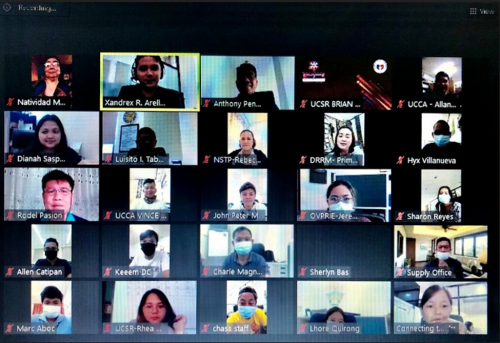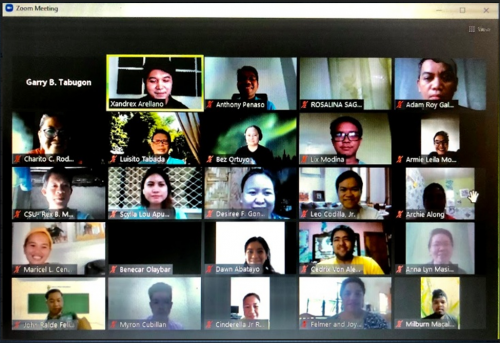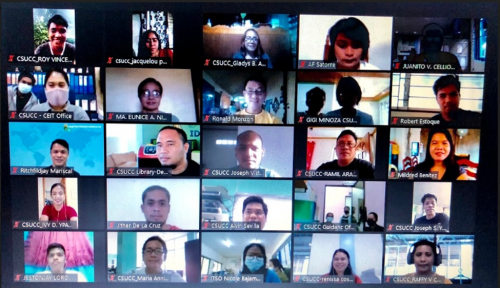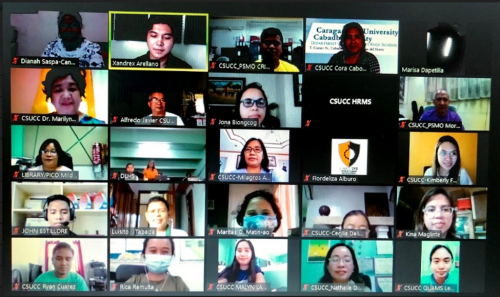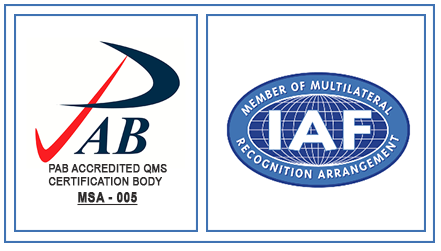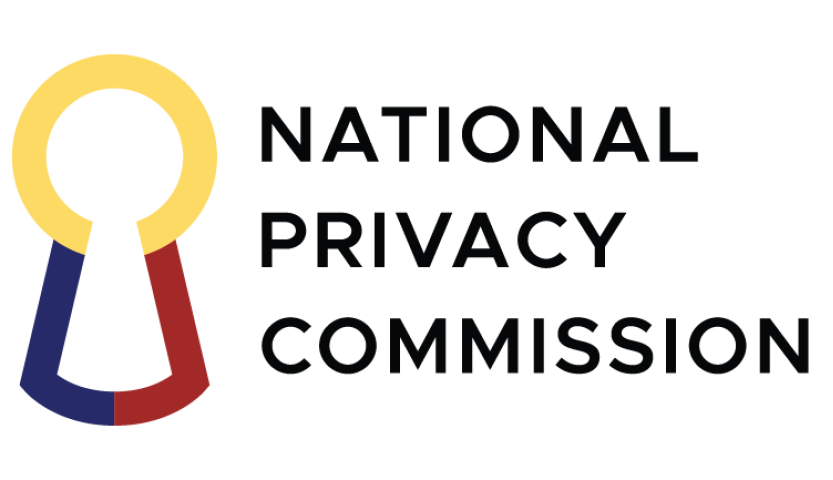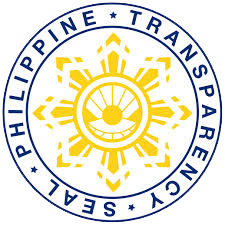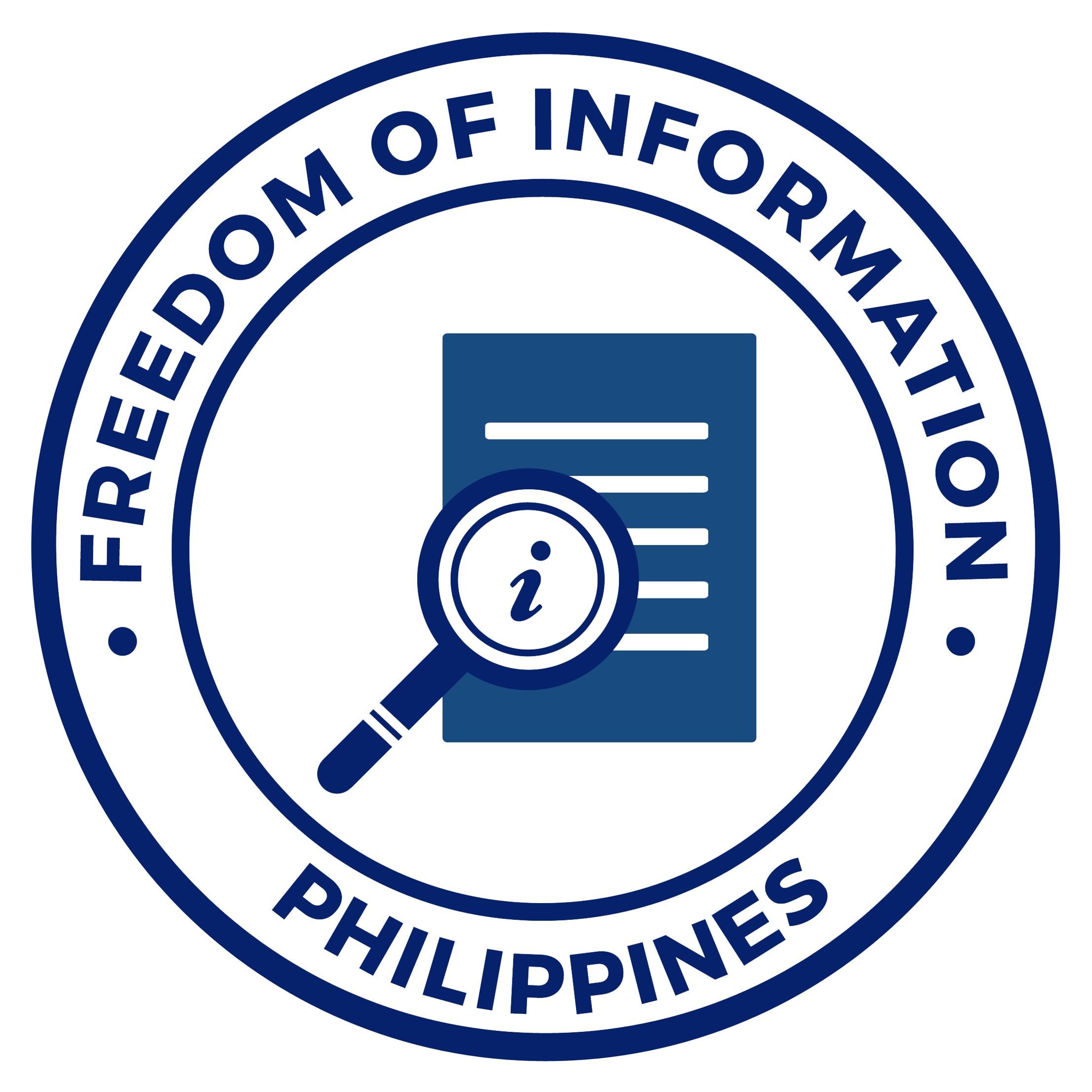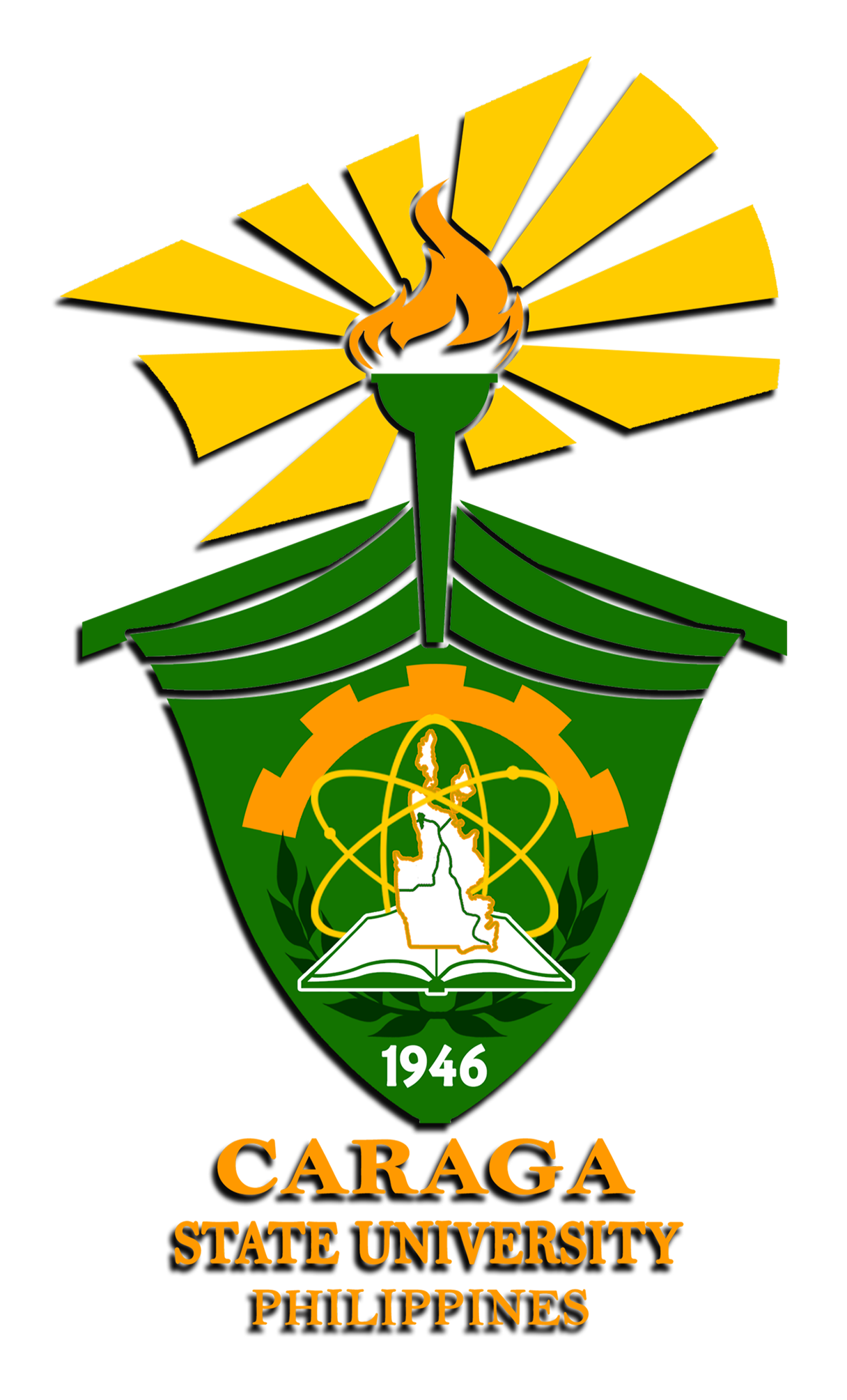News and Events
CSU Conducts Series of Webinar on Data Privacy Act of 2012
Caraga State University conducted a webinar on Data Privacy Act of 2012 on January 20-21, 2021 via Zoom at 1:30 in the afternoon. The goals of the said webinar are to enhance knowledge on Data Privacy Act of 2012, develop awareness in data handling, and develop skills in data security.
In 2012, the Philippines passed Republic Act No. 10173 or the Data Privacy Act of 2012 (DPA) “to protect the fundamental human right to privacy of communication while ensuring free flow of information to promote innovation and growth; and the country’s inherent obligation to ensure that personal information in information and communications systems in government and in the private sector are secured and protected”.
“The DPA was passed in accordance with the Philippines agreements under ASEAN Vision 2020 and at the urging of the growing business process outsourcing industry. The law was modeled after the Data Protection Directive (95/46/EC) with many of its terminologies and provisions similar to privacy laws in other jurisdictions.” It is very relevant in today’s digital world and in the advent of the Fourth Industrial Revolution.
CSU President, Dr. Anthony M. Penaso formed a DPA Team who were trained on how to carry out and thoroughly implement the Data Privacy Act in the University. The series of lecture-discussion webinars were divided into four to cater to all the CSU personnel, including the CSU Cabadbaran Campus.
The DPA Team headed by its Team Leader, Dr. Luisito I. Tabada who is also the Vice President for Executive Operations and Auxilliary Services divided to themselves the different topics to talk into. Other members of the team are the University and Board Secretary, Atty. Dianah Jee U. Saspa-Canumay, and Quality Assurance and Management Services Director, Dr. Fernando T. Herrera.
Atty. Canumay discussed the first five units. She elaborately explained the importance of data handling and showed examples of individuals who were victims of data threats. Dr. Tabada thoroughly explained to the participants how important it is to remember the lifespan of a data and how it can be legally dismantled after its use. On the other hand, Dr. Herrera explicated the risks and penalties a data handler could receive if he carelessly violates the laws on data security.
Questions were raised and answered assiduously during the open forum. Among the queries mentioned were social media postings and other related topics. The webinar ended successfully. XRA/OVPEOAS/pico
Admissions
Registrar
Guidance
Office of the President
Public Information and Communication Office
Course Particulars
College of Engineering and Geo-Sciences
College of Agricultural and Agri-Industries
College of Mathematics and Natural Sciences
College of Forestry and Environmental Sciences
College of Computing and Information Sciences
College of Education
Philippine Standard Time
Transparency Seal
Design by ICT Center.

